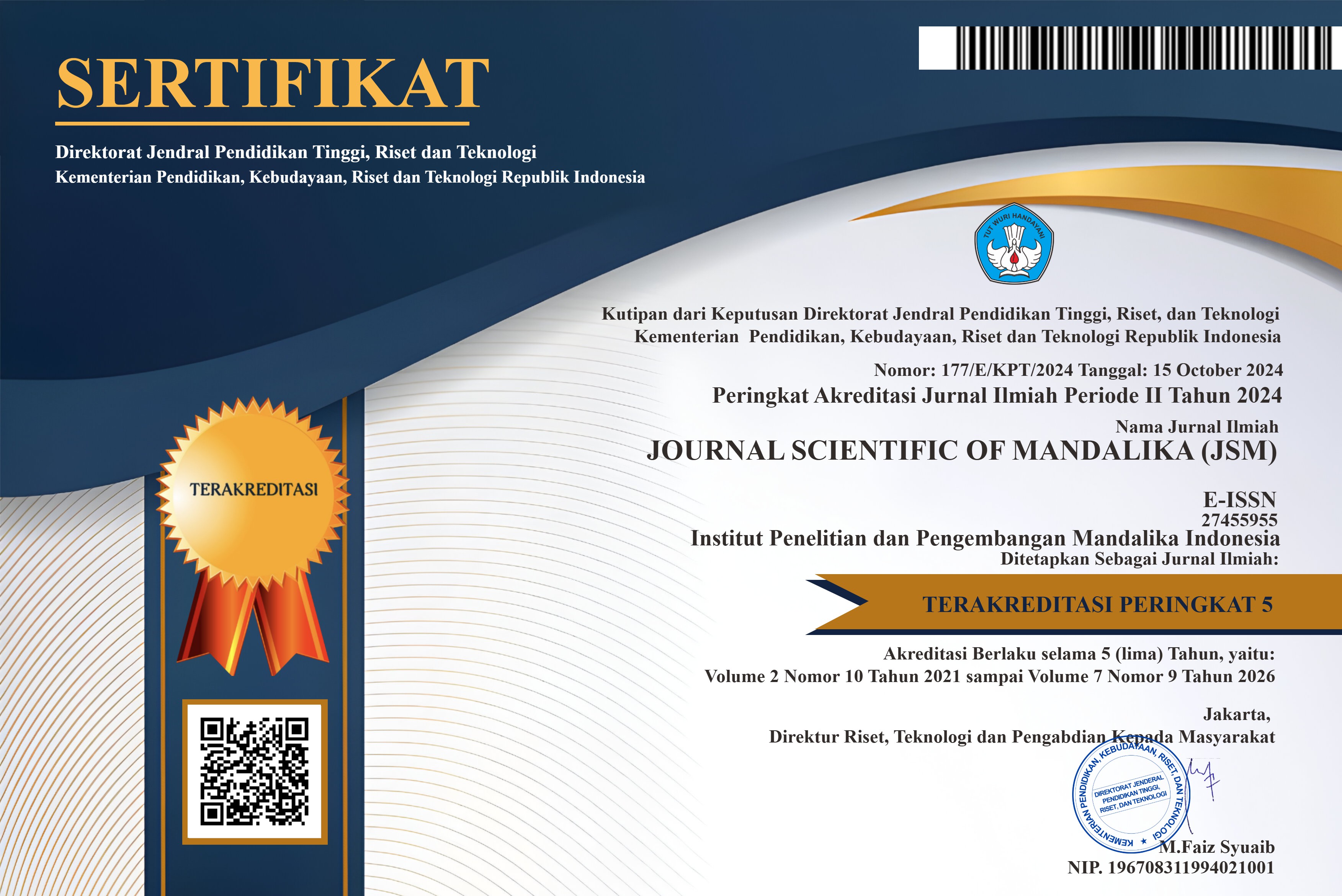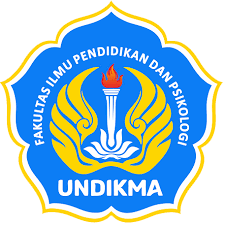Hubungan Tingkat Pendidikan Dengan Kecemasan Orang Tua Pasien di Nicu RSPAD Gatot Soebroto
Abstract
Parents of critically ill infants admitted to the Neonatal Intensive Care Unit (NICU) often experience emotional stress and anxiety due to hospitalization. This study aims to examine the relationship between educational level and parental anxiety in the NICU at RSPAD Gatot Soebroto. This research used a quantitative method with a cross-sectional design and a correlational approach. The sample consisted of 20 parents, selected using total sampling over one month. The instrument used was the Zung Self-Rating Anxiety Scale (ZSAS) questionnaire. Data were analyzed using the Spearman Rank test. Results showed that most respondents were aged 26–35 years (50%), female (60%), had a secondary education level (45%), and earned ≥ the regional minimum wage (60%). The majority experienced mild anxiety (70%). Statistical analysis yielded a significance value of 0.308 (p ≥ 0.05), indicating no significant relationship between educational level and parental anxiety in the NICU. Therefore, it is recommended that hospital policies and psychosocial support programs be designed to reach all parents regardless of educational background. Healthcare providers are also encouraged to apply a holistic approach that considers other factors such as social support, emotional condition, and parents’ personal experiences
References
2. Feeley, N., Waitzer, E., Sherrard, K., Boisvert, L., & Zelkowitz, P. (2013). Fathers’ perceptions of the barriers and facilitators to their involvement with their newborn hospitalised in the neonatal intensive care unit. Journal of Clinical Nursing, 22(3–4), 521–530. https://doi.org/10.1111/j.1365-2702.2012.04231.x
3. Franck, L. S., Wray, J., Gay, C., Dearmun, A. K., Lee, K., & Cooper, B. A. (2015). Predictors of parent post-traumatic stress symptoms after child hospitalization on general pediatric wards: A prospective cohort study. International Journal of Nursing Studies, 52(1), 10–21. https://doi.org/10.1016/j.ijnurstu.2014.07.002
4. Hidayati, N., & Wulandari, D. (2021). The impact of parental education on anxiety levels in NICU parents. Jurnal Keperawatan Indonesia, 24(3), 190–197. https://doi.org/10.7454/jki.v24i3.1220
5. Ilyes, S. G., Chiriac, V. D., Gluhovschi, A., Mihaela, V., Dahma, G., Mocanu, A. G., & Craina, M. (2022). The influence of maternal factors on neonatal intensive care unit admission and in-hospital mortality in premature newborns from Western Romania: A population-based study. Medicina, 58(6), 709. https://doi.org/10.3390/medicina58060709
6. Koivisto, K. M., Nieminen, T., Hermunen, T., Rantanen, M., Saxén, H., & Madanat-Harjuoja, L. (2024). Parental socioeconomic status and an infant’s risk of hospital admission for respiratory syncytial virus. Journal of the Pediatric Infectious Diseases Society, 13(11), 568–575. https://doi.org/10.1093/jpids/piae101
7. Lee, H., & Kim, J. (2023). Educational level and psychological resilience of NICU parents. International Journal of Pediatric Psychology, 45(1), 34–41. https://doi.org/10.1080/17437199.2023.2173241
8. Leemann, T., Bergstraesser, E., Cignacco, E., & Zimmermann, K. (2020). Differing needs of mothers and fathers during their child’s end-of-life care: Secondary analysis of the “Paediatric end-of-life care needs” (PELICAN) study. BMC Palliative Care, 19, 1–9. https://doi.org/10.1186/s12904-020-00621-1
9. Nisa, H., Puspitarini, L. M., & Zahrohti, M. L. (2022). Perbedaan peran ibu dan ayah dalam pengasuhan anak pada keluarga Jawa. Jurnal Multidisiplin West Science, 1(2), 244–255. https://wnj.westscience-press.com/index.php/jmws/article/view/68
10. Putra, A., Santoso, H., & Dewi, F. (2022). Communication and social support in reducing parental anxiety in NICU. Nursing and Health Sciences Journal, 14(4), 222–230. https://doi.org/10.31290/nhsj.v14i4.1234
11. Qi, Z., Wang, Y., Lin, G., Ma, H., Li, Y., Zhang, W., & Network, C. N. (2022). Impact of maternal age on neonatal outcomes among very preterm infants admitted to Chinese neonatal intensive care units: A multi-center cohort study. Translational Pediatrics, 11(7), 1130–1139. https://doi.org/10.21037/tp-22-56
12. Shafipour, V., Moosazadeh, M., Jannati, Y., & Shoushi, F. (2017). The effect of education on the anxiety of a family with a patient in critical care unit: A systematic review and meta-analysis. Electronic Physician, 9(3), 3918–3924. https://doi.org/10.19082/3918
13. Smith, A., Johnson, R., & Lee, K. (2022). Parental anxiety and coping mechanisms in NICU settings. Journal of Neonatal Nursing, 28(2), 101–108. https://doi.org/10.1016/j.jnn.2021.11.003
14. Wray, J., Lee, K., Dearmun, N., & Franck, L. (2011). Parental anxiety and stress during children’s hospitalisation: The StayClose study. Journal of Advanced Nursing, 67(3), 622–641. https://doi.org/10.1111/j.1365-2648.2010.05534.x
15. Zhang, Y., Wang, L., & Chen, S. (2021). The relationship between parental education and anxiety in NICU parents: A cross-sectional study. Pediatrics and Neonatology, 62(5), 488–494. https://doi.org/10.1016/j.pedneo.2021.03.003
Copyright (c) 2025 Pandan Enggarwati, Ira Kusumawati

This work is licensed under a Creative Commons Attribution-ShareAlike 4.0 International License.













